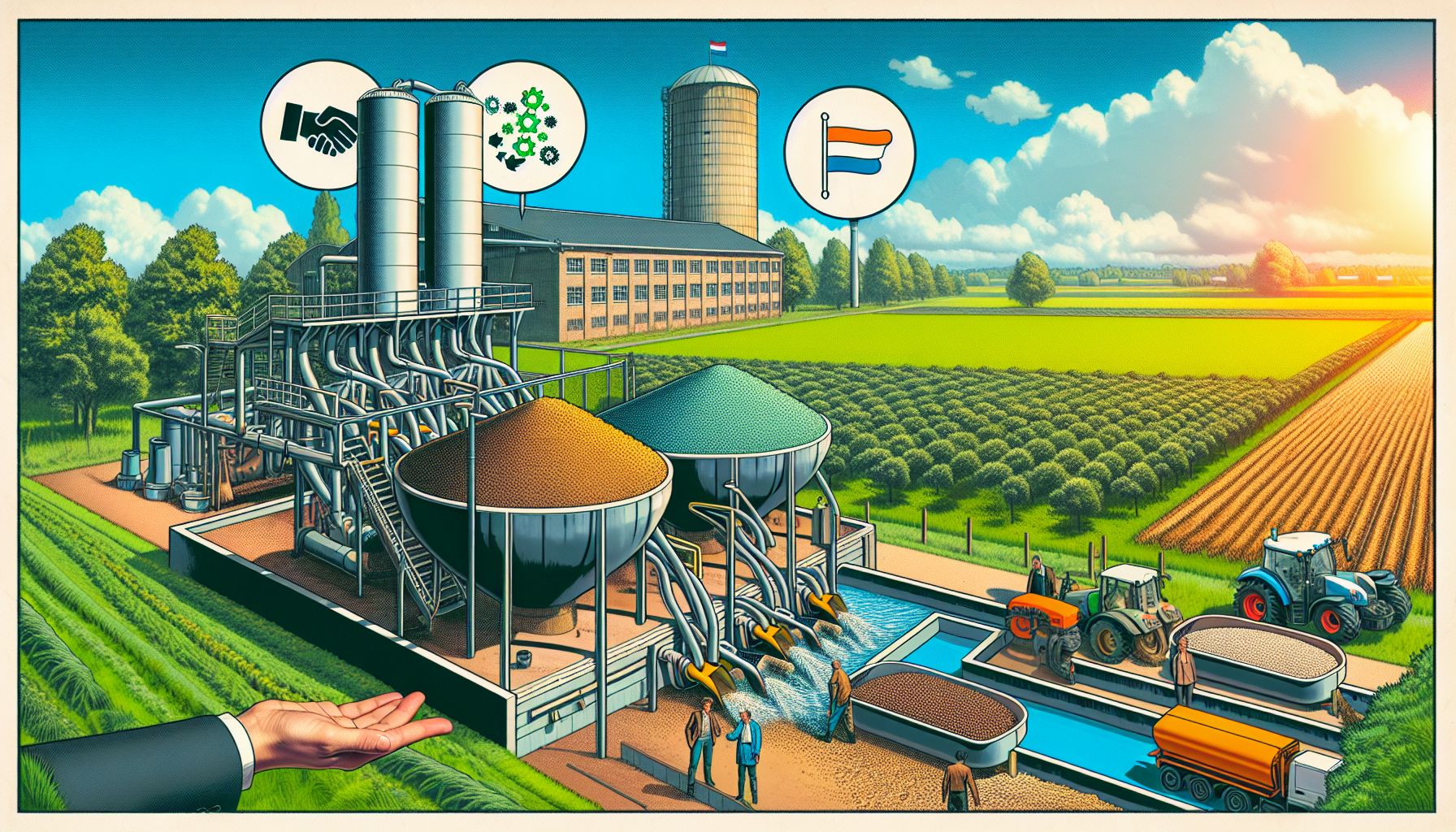Dutch Government Unveils Subsidy for Manure Processing to Balance Agriculture and Environment

Brabant, Saturday, 14 September 2024.
Minister Wiersma introduces measures to alleviate pressure on the Dutch manure market, including subsidies for manure processing and export. The initiative aims to support farmers while addressing environmental concerns, with changes to nitrogen limits and production ceilings.
Balancing Agricultural Productivity and Environmental Sustainability
The new measures announced by Minister Wiersma from the Ministry of Agriculture, Fisheries, Food Security, and Nature (LVVN) are designed to strike a delicate balance between maintaining agricultural productivity and minimizing environmental impact. By increasing manure processing capacity and providing subsidies for manure export, the government aims to alleviate the pressure on the Dutch manure market. This initiative also includes expanding manure storage facilities to help farmers better manage their waste.
Key Changes in Regulations
One of the significant changes involves the reduction of derogation-free zones around Natura2000 areas from 250 meters to 100 meters, effective from 2025. This change will enable farmers to apply for derogation more easily. In addition, the nitrogen correction factor will be increased from 10.1% to 14% starting 1 January 2025, allowing farmers to use more manure on their land within the limit of 170 kilograms of nitrogen per hectare. These adjustments are expected to better reflect actual nitrogen losses during manure storage and application.
Support for Farmers and Market Expansion
The government has introduced subsidies for manure processing and export, with additional support to help farmers find new markets through a dedicated ‘manure envoy.’ This initiative is part of a broader effort to reduce the national manure production ceiling, which is set to decrease to 135 million kilograms of phosphate and 440 million kilograms of nitrogen by 2025, a 10% reduction from 2024 levels. Minister Wiersma emphasized the importance of optimizing manure export opportunities to relieve the domestic market.
Voluntary Exit Scheme and Protein Reduction
To further aid farmers, the government is working on a voluntary exit scheme for those wishing to leave the industry, expected to be introduced by early 2026. Additionally, there is a push to reduce crude protein levels in animal feed to lower nitrogen emissions. The extension of the manure spreading season by two weeks in 2024 is another measure aimed at maximizing the use of manure as fertilizer, thereby reducing environmental impact.
Global Context and Comparisons
The challenges faced by the Dutch agriculture sector are not unique. For instance, in China, efforts to manage animal waste have led to the banning of direct manure application on farmlands due to high levels of antimicrobials and antimicrobial resistance (AMR) genes found in manure-based fertilizers. China’s approach underscores the importance of comprehensive strategies to manage manure sustainably, including reducing antimicrobial use in livestock farming and developing technologies for antimicrobial removal and disinfection[2].
Conclusion
Minister Wiersma’s measures represent a significant step towards creating a more sustainable and balanced agricultural sector in the Netherlands. By providing financial support for manure processing and export, adjusting nitrogen limits, and implementing new regulatory changes, the government aims to support farmers while protecting the environment. These initiatives, along with lessons learned from international examples, highlight the importance of innovation and adaptability in addressing the complex challenges of modern agriculture.

